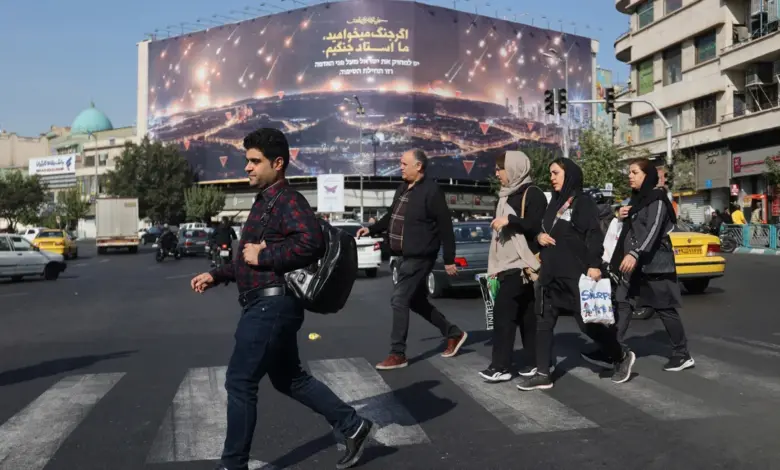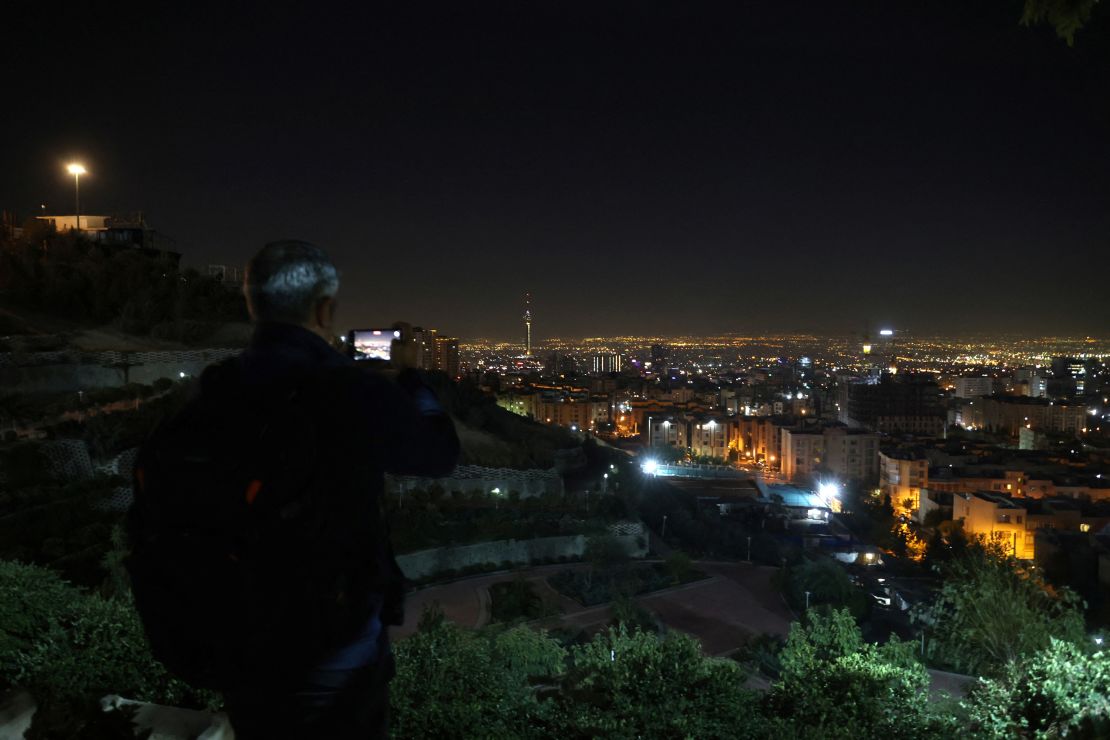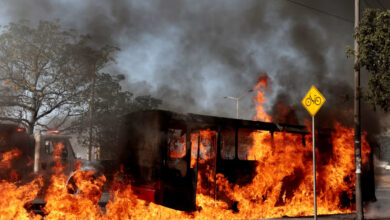
The airstrikes “should be the end of this direct exchange of fire between Israel and Iran,” a senior US administration official said after the attacks.
After reports emerged of explosions heard in Tehran, Israel in a statement said it launched what it described as “precise strikes on military targets in Iran” early Saturday. The strikes were in response to Iran’s barrage of missiles fired at Israel on October 1, in retaliation to the killing of Hezbollah leader Hassan Nasrallah and others.
Iran said Israel “attacked parts of military centers” on Saturday in the provinces of Tehran, Khuzestan and Ilam, causing “limited damage” in some areas.
Iran appeared to have downplayed the Israeli strike, Iranian experts said. State media broadcast images showing calm on the streets of Tehran, with traffic moving and people going about their daily business.
Iran’s foreign ministry condemned the attack, calling it “clear violation” of international law. The ministry added that Iran “considers itself entitled and obligated to defend itself” after the Israeli strikes.
Trita Parsi, executive vice president of the Quincy Institute for Responsible Statecraft in Washington, DC, said Iran’s downplayed response may be “more reflective of their desire to de-escalate than a true assessment of the damage Israel inflicted on Iran,” like Israel’s attempts to hide damage caused by Iran’s October 1 attack.
Behnam Ben Taleblu, a senior fellow at the Foundation for Defense for Democracies, also based in DC, said Iran’s downplayed response may be “a strategic move to save face and keep US constraint on Israel.”
After several hours of strikes Saturday, the Israeli military said it had targeted manufacturing sites used to produce missiles that Iran has fired at Israel over the past year. Israel also said it hit Iranian aerial defense systems early Saturday to allow its aircraft to attack the other targets.

Israel’s decision to strike early Saturday morning came after weeks of deliberations within its security cabinet about the nature and scope of such an attack, Israeli officials said.
American officials have been keen to show the extent to which Israel’s attack was retrained and precise, especially as the US pushed Israel not to attack Iran’s energy infrastructure, for fear of igniting a broader conflict, a request Israel seems to have heeded, according to preliminary reports.
After Israel’s retaliatory strikes against Iran ended, National Security Council spokesperson Sean Savett said the White House urges “Iran to cease its attacks on Israel so that this cycle of fighting can end without further escalation.”
But Israel has not always met the demands of its American ally. Throughout the war, Israel has defied the US’ calls for restraint – on the Rafah operation in southern Gaza, and more recently on a ground war in southern Lebanon.
Disagreements between the two governments culminated in an October 13 letter from the US to Israel, demanding the Jewish state act to improve the humanitarian situation in Gaza within the next 30 days or risk violating US laws governing foreign military assistance, suggesting US military aid could be in jeopardy.
Danny Citrinowicz, a research fellow with the Iran Program at the Institute for National Security Studies in Tel Aviv and a retired Israel Defense Intelligence officer who specialized in Iran, said it was too early to predict how the coming hours and days will unfold. “But one thing is clear,” he said, “Israel and Iran came closer than ever last night to the brink of direct war.”
“The ball is now in the Iranian leadership’s court,” Citrinowicz said on X, adding that the Iranian regime likely faces a familiar dilemma: to strike back for reputational gains, or take Israel’s attack as an end to the direct conflict.
Parsi of the Quincy Institute said that “if Iran chooses to exercise restraint… then this chapter may be closed, yet the conflict will remain very much alive.”
When Iran chose restraint after Israel’s retaliation in April, it emboldened the Jewish state to take out key Hezbollah leaders in Beirut, which triggered the next cycle of aggression.
Experts say that while Israel presses on with its wars in Gaza and Lebanon, any pause in direct fighting between Iran and Israel is likely to be short-lived.
As long as those regional wars persist, the overall trajectory of the Israel-Iran conflict will escalate. “While we may see some tactical de-escalation, the trajectory remains escalatory,” Parsi said, adding “a new exchange of fire between Israel and Iran will only be a question of time,” with the next round likely to be “more ferocious.”
Israel has long tried to push Iran and other Iranian proxies back into deterrence. But experts say Israel’s strategy may not be entirely effective.
“Iran will not be deterred from escalating in the future if it so sees fit, neither would Israel,” H.A. Hellyer, scholar at the Carnegie Endowment for International Peace and the Royal United Services Institute for Defense and Security Studies in London, told CNN’s Paula Newton, adding that deterrence is often used as an excuse by the attacking state, but only leads to more regional instability.
“It doesn’t de-escalate through escalation,” he said, “which is the most incredible thing I’ve heard.”
CNN’s Samantha Waldenberg, Artemis Moshtaghian, Alex Stambaugh, Eugenia Yosef, Jeremy Diamond, Chris Lau and Mostafa Salem contributed reporting.




